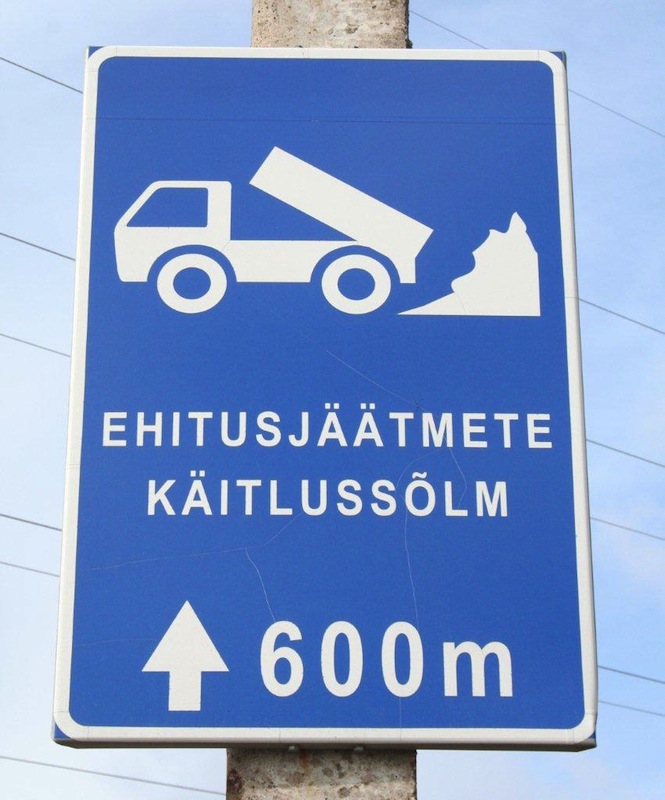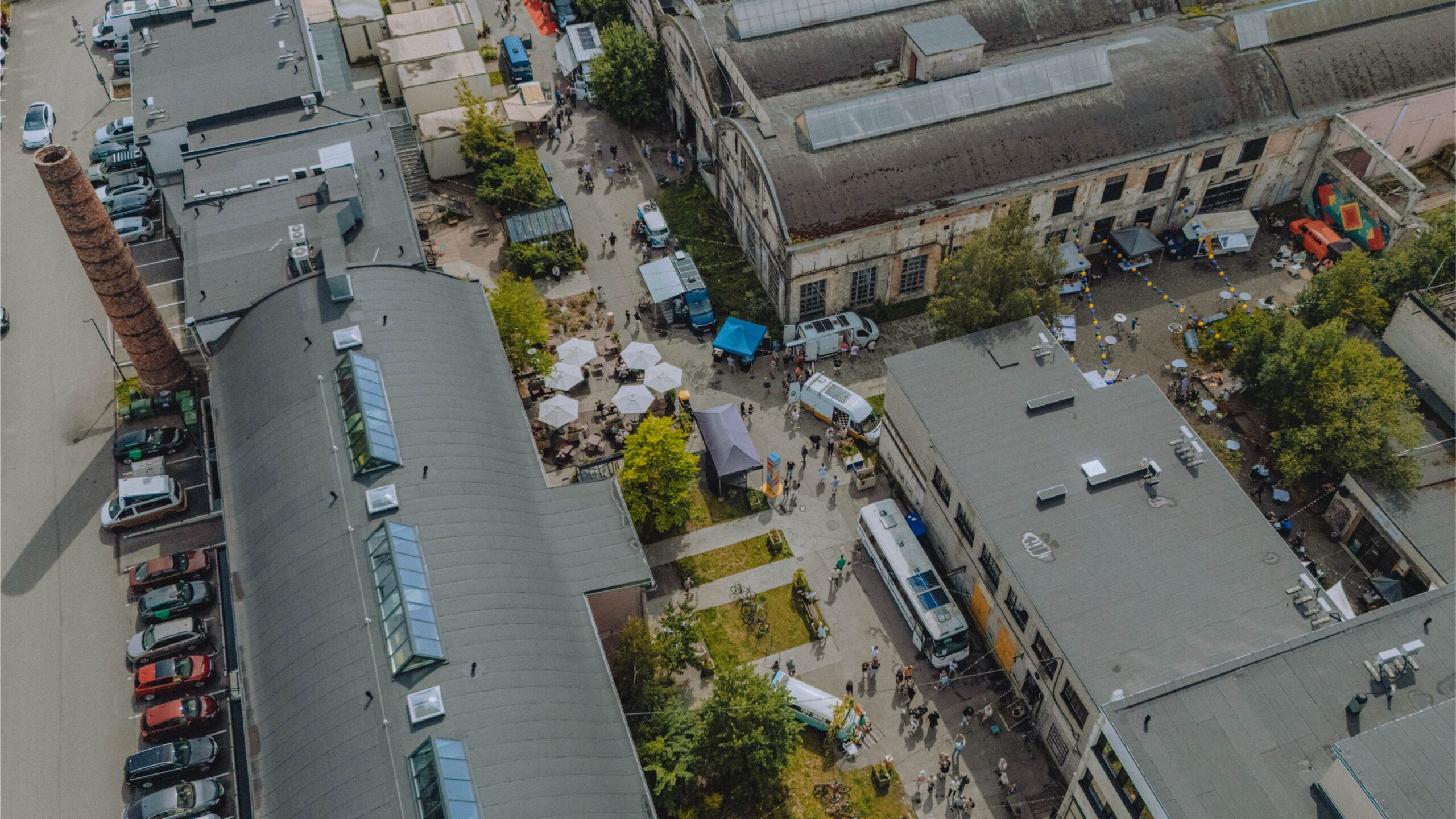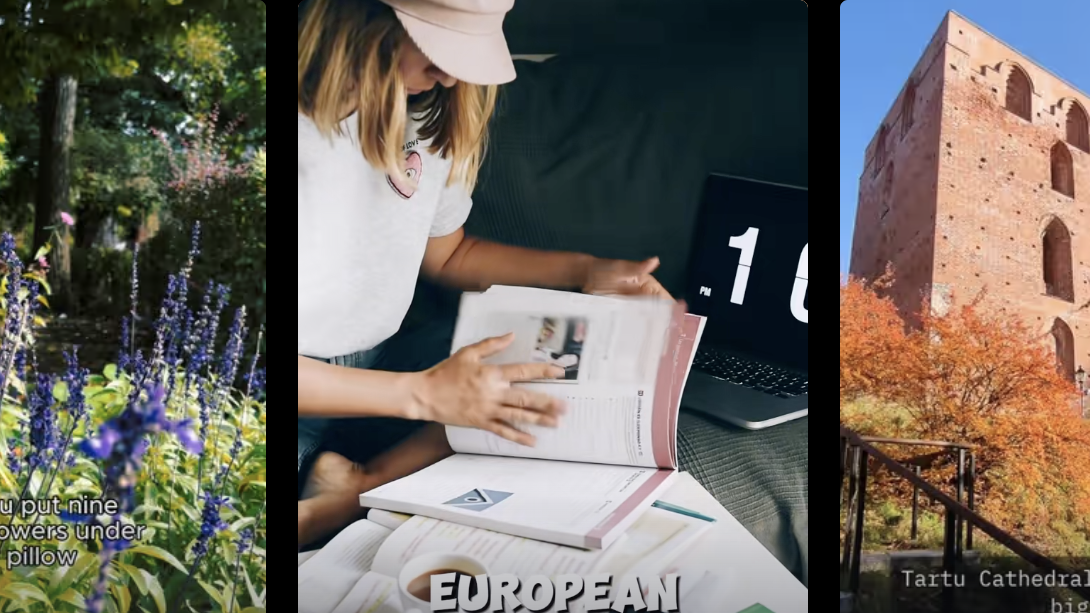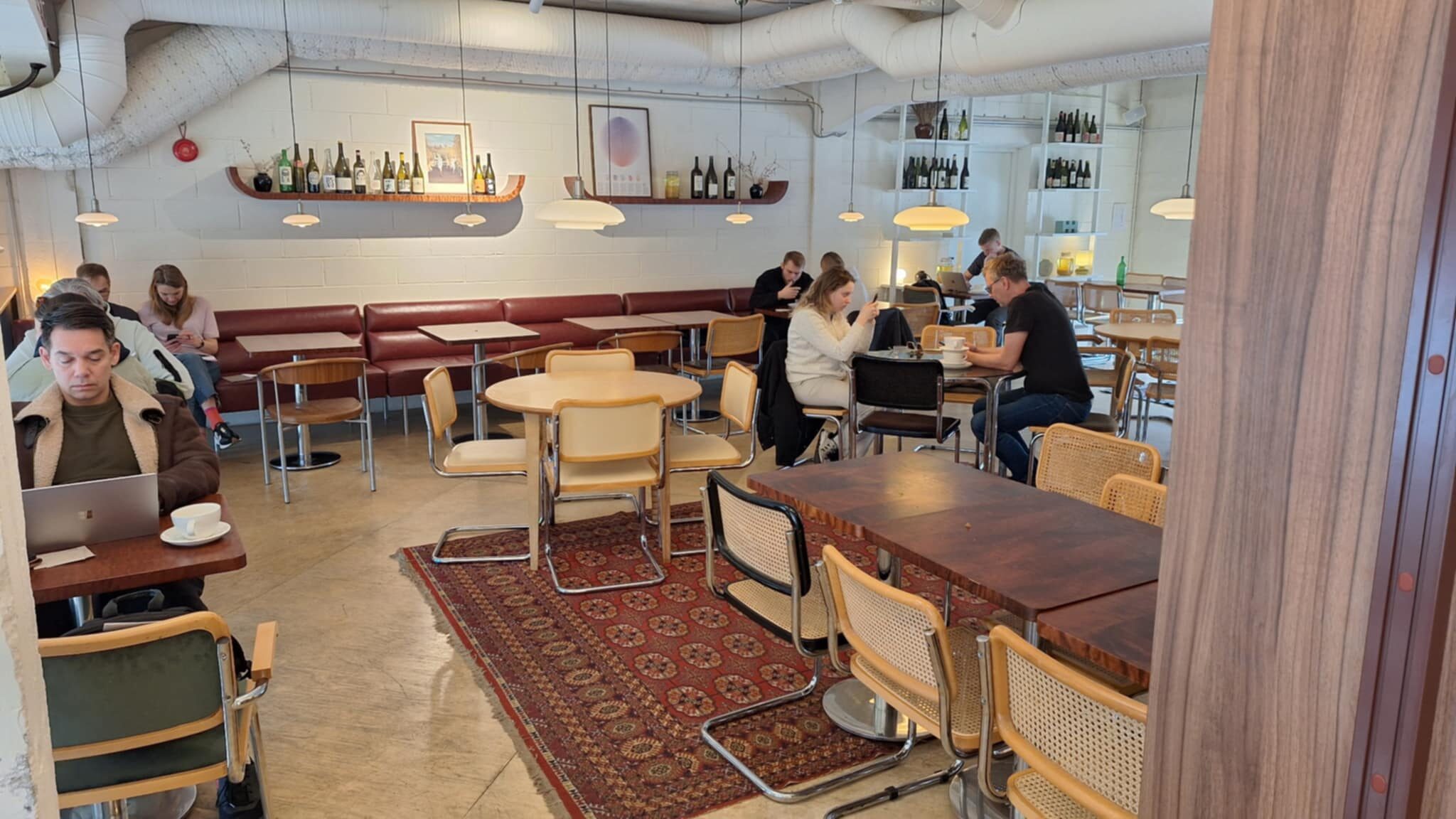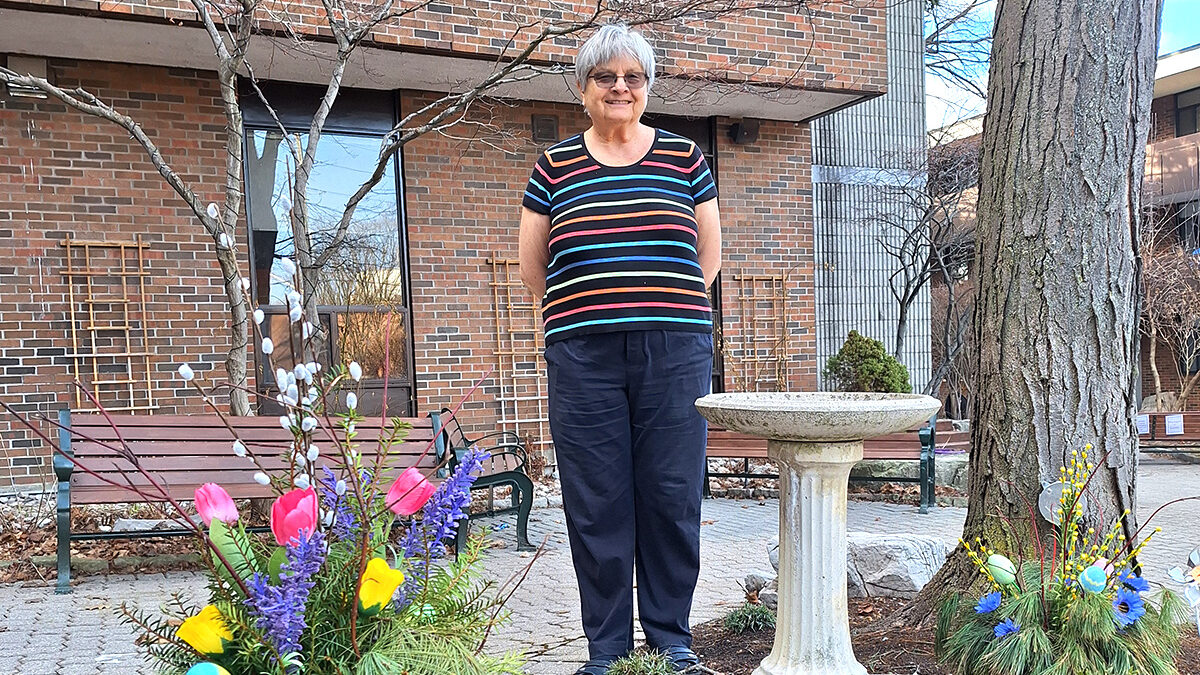Toidu/jäägid = food scraps. The term is almost always used in the plural (jäätmed vs sing. jääde) and implies that although usually no longer fit for its initial use, it can still be used as raw, re-usable material, e.g. vana/paber (“old”, i.e. used paper), vana/metall and tootmis/jääde – manufacturing waste.
PHOTO: Just because you don't use a term or phrase very often doesn't mean it's not useful. If you see this sign, at least you'll know where you're headed. You could also use this technically impressive, very contemporary pair of compound words to wow other Estonian-speakers. Photo by Riina Kindlam
All the things you collect in your various recycling bins (jäätme/RINGLUS or -KÄITLUS kastid) at home are jäätmed. Including the most recent type to be collected in Estonia – bio/lagunev (biodegradable) waste. The circular recycling symbol makes it easy to remember the Estonian terms ringlus (circulation, rotation) and ringlema = to circulate, go round and round; all derived from the easily recognisable word ring, i.e. circle. N.B. the other word for recycling, used for items such as clothing and furniture is TAAS/KASUTUS, literally re-use.
KÄITLEMA = to handle, treat, manage. This word has developed out of its close relative in meaning käsitlema, (to deal (with), use, handle) which contains the key word käsi – hand.
And the last piece of this word puzzle SÕLM literally means knot, but also a meeting place of, for instance rail lines (raud/tee/sõlm – railway junction), vehicles (liiklus/sõlm – highway overpass / cloverleaf), pipes removing waste water from your home (sanitaar/sõlm) or, as in the photo, a place where construction waste can be disposed in a depot.
Some knots, loops and junctions in your body include kõrisõlm (Adam's apple) and lümfisõlm (lymph glands or nodes).
Riina Kindlam, Tallinn
